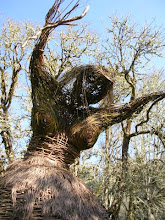With an interest in literature and the history of the book, I recently browsed one of The Book Buyer magazines that I purchase from a colleague. This magazine offered reviews of “American and Foreign” literature, author and illustrator profiles, reviews of new books, and even articles on such subjects as book plates.
One letter to the editor speaking to the issue of limp and thoughtless writing (and in particular of a new book of poetry by Charles Swinburne) is so pointed and amusing, and so deliciously phrased, that I gave up trying to edit it down and include it here in its entirety and without further comment.
The Rocking-Horse in Literature
John Maybury
To the editor of The Book Buyer (Scribner’s Sons, pub.)
Every now and then the patient reader of general literature is confronted with a specially exasperating example of what, for want of a better name, may be called the rocking-horse style. It occurs with some frequency in the short stories which furnish forth certain magazines, and it leaves the reader divided between discontent because the stories are no better, and gratitude because they are no worse.
The suggestion given by prose written in this style is of those spirited wooden steeds whose forefeet pay the air, and whose hind legs seem about to spring lightly from the rocker. But they never leave it. The horse gallops magnificently up and down, but never gets ahead; his promise is great, and his performance nothing; his form is the hunter’s, and his execution practically that of a three-legged stool. The story has interest, of a kind, and is smartly told; but nobody seems to amount to very much, or to do anything worth talking about.
In poetry, the rocking-horse manner is favored by many writers who balance line with line, cadence with cadence, and sometimes even word with word, so that their verse rocks as evenly as the staple rocking-horse of commerce. The result is often musical as a harp hung upon a bough; but it would take a wood-god to interpret the meaning. There is more excuse for this sort of material composition than for the prose, because there is a pretty well-defined impression abroad that a poet must sing in his own words, given him by the immortals, and that it is our own fault if our ears are not fine enough to hear his melody.
Still, it takes abundant charity, suffering long, to believe that all the young men and women who write this sort of verse are moved thereto by any worthier motive than the belief that it will taste sweet in the public mouth greedy for novelty, and that thus it will pay their bills. Now, it is granted that to pay one’s bill is honest, but it is not specially poetic, in itself considered.
The greatest poet in England is one of those who occasionally rock so furiously as to invite the belief that they do it to kill time while thinking up something to say. Mr. Swinburne’s new volume of poems is dedicated to William Morris in thirteen stanzas of liquid light – or something. One of the thirteen is apt among ten thousand as an illustration. Hark to the music – and then find the hidden meaning, if you can:
“Not yesterday’s light nor to-morrow’s
Gleams nearer or clearer than gleams,
Though joys be forgotten and sorrows
Forgotten as changes of dreams,
The dawn of the days unforgotten
That noon could eclipse not or slay,
Whose fruits were as children begotten
Of dawn upon day.”
This is the noblest form of rocking-horse poetry, but fine as it is, and sweet its message, one comes crying as Pip’s benefactor used to say: “Might a mere warmint ask what” message?
John Maybury New York, June 10, 1894





No comments:
Post a Comment